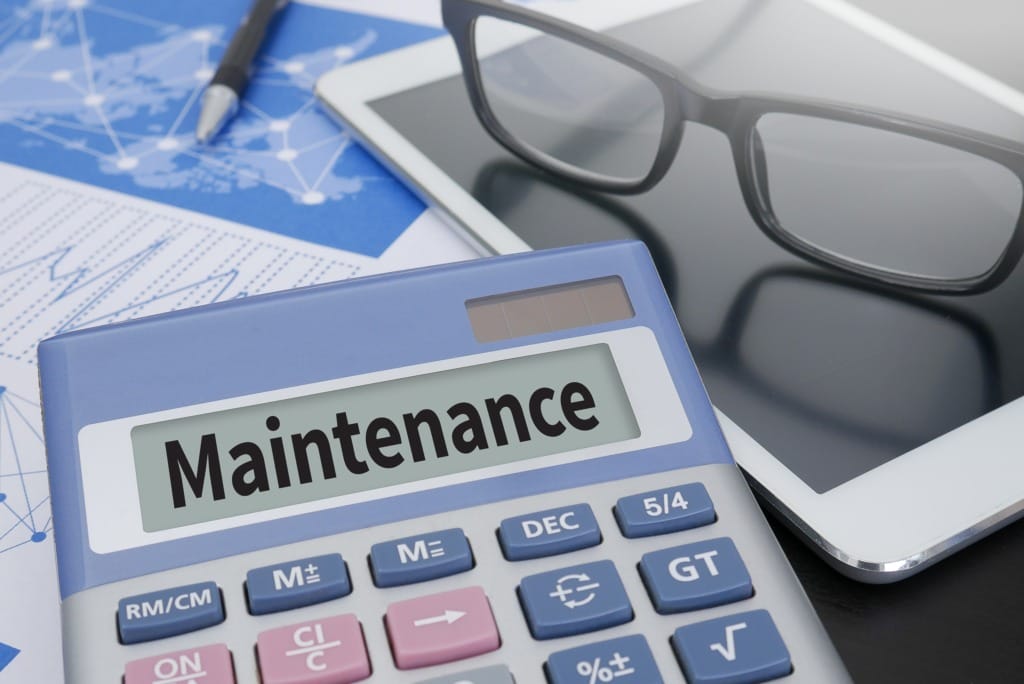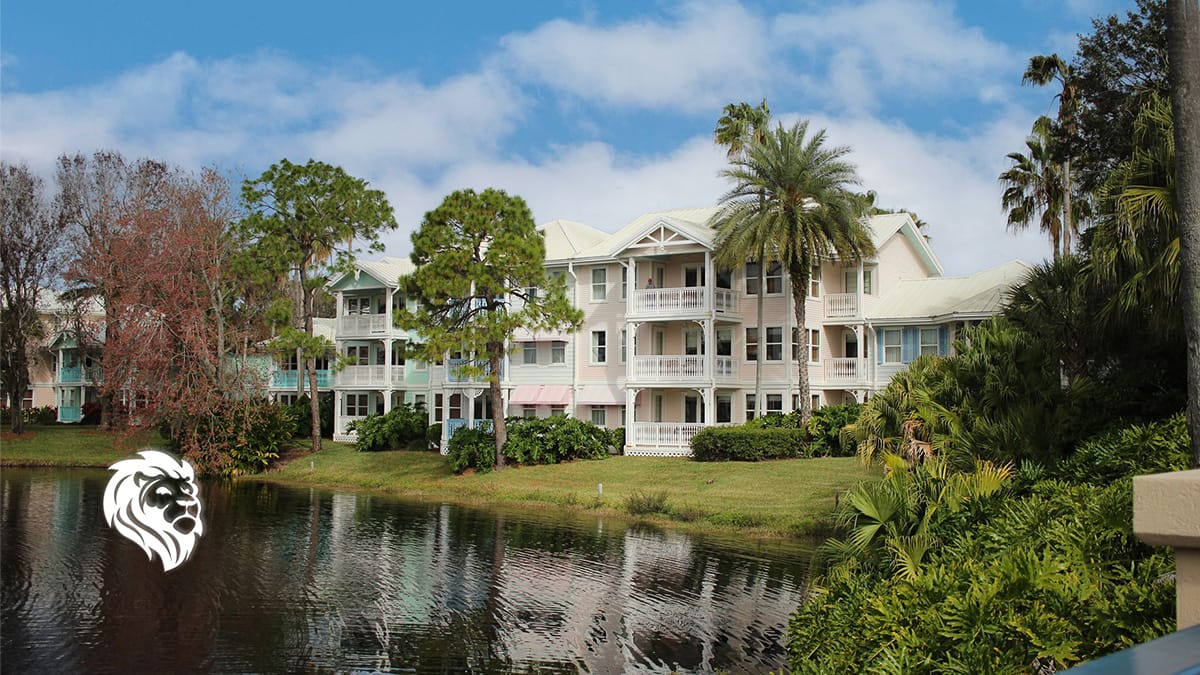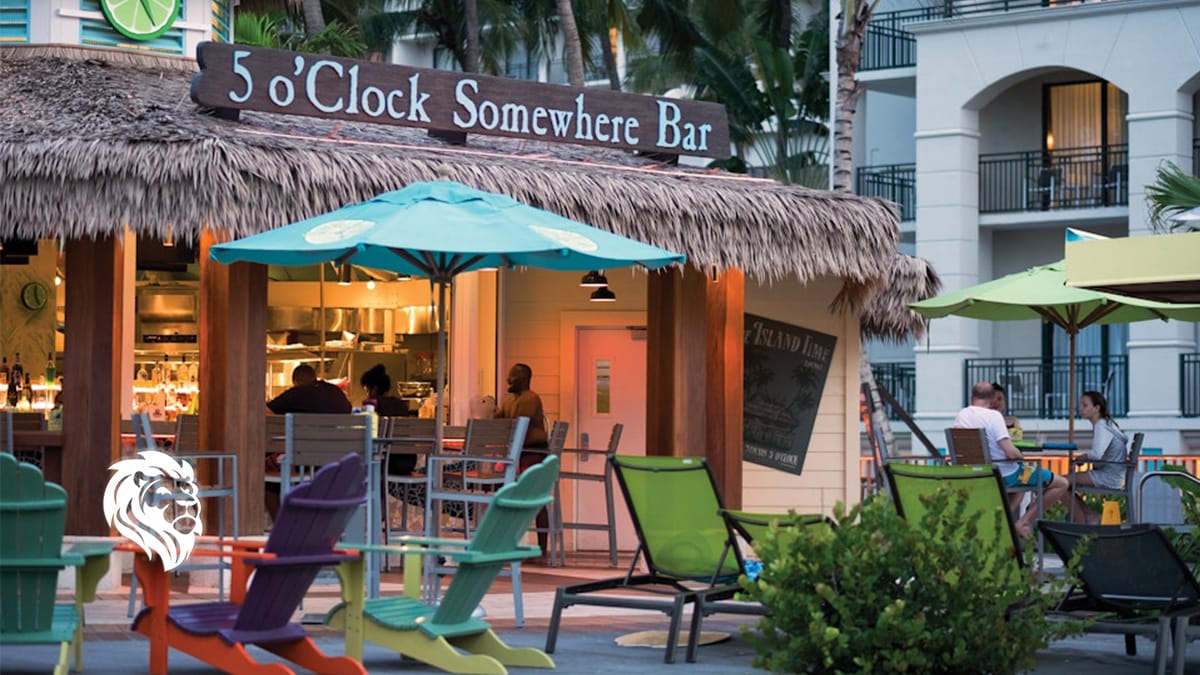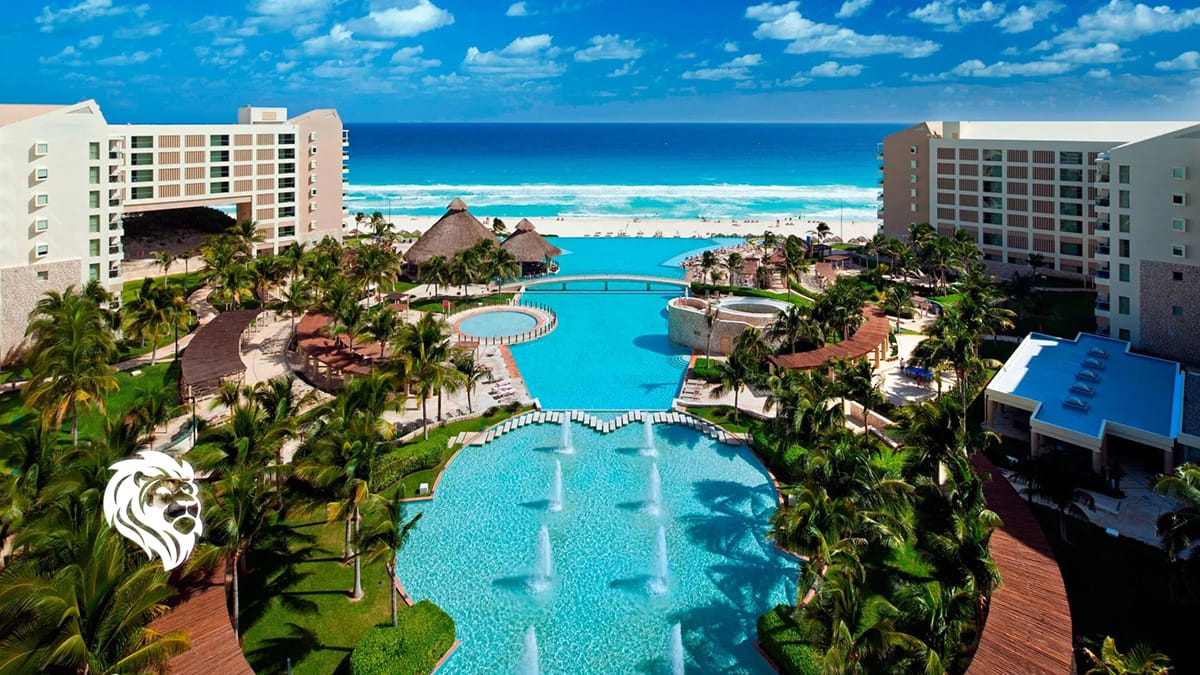Are you considering becoming a timeshare owner but unsure how much it costs? If that’s you, we’re here to help answer all your questions about how much timeshares cost. Before committing to vacation ownership, it’s vital to understand all costs associated with owning a vacation home. You must consider all vacation ownership costs like the initial purchase price, property taxes, closing costs, maintenance fees, etc. In addition, the resort itself, the location, accommodation size, week number, and more can affect the cost of your timeshare. While this may give you pause, owning a timeshare has its fair share of perks, including long-term vacation cost savings, guaranteed annual vacations, access to upscale amenities, and spacious villa- and suite-style accommodations. So, if you’d like to get the full scoop on “How much is a timeshare,” continue reading our blog to learn more.
- Key Commitments and Considerations Before Buying a Timeshare
- Maintenance Fees
- Why You Should Pay Maintenance Fees
- How to Budget for Future Timeshare Costs
- What Is the Typical Interest Rate for Financing a Timeshare Purchase?
- How Have Timeshare Interest Rates Changed in Recent Years?
- RCI and Interval International
- Can You Pass Down a Timeshare to Your Family?
- Planning for the Long Haul
- The Value of Consistency and Flexibility
- Building Lasting Memories
Key Commitments and Considerations Before Buying a Timeshare
Before diving into timeshare ownership, it’s important to know exactly what you’re signing up for—beyond sun-soaked pool days and suite upgrades.
You’ll want to pause and consider these commitments:
- Upfront Costs: The initial purchase price from a developer can be significant and varies dramatically based on location, resort brand, accommodations, and timing. Luckily, you can save with resale.
- Recurring Fees: Annual maintenance fees are required and can increase over time.
- Long-Term Obligations: Many timeshares come with long-term (sometimes lifelong) obligations, so be sure you’re comfortable with the commitment.
- Timeshares Aren’t an Investment: Unlike traditional real estate, selling or exiting a timeshare isn’t typically profitable. Don’t buy a timeshare thinking of it as a financial investment.
- Exchange Programs: If you dream of new destinations every year, look into exchange networks like RCI or Interval International. Just note that these often come with extra fees and their own sets of rules.
Take a clear-eyed look at your travel habits and budget. Being fully informed means you can focus on enjoying future getaways.
How Much Do Timeshares Cost?
ARDA, the American Resort Development Association, reports yearly timeshare ownership financial trends. Timeshare ownership currently stands as an industry worth $10.6 billion, which is exponentially growing each year. Furthermore, as of 2023, there were over 252,070 timeshare units in the U.S. alone, and more are in development. As of 2024, a timeshare’s average initial purchase price is $24,170 when bought directly by timeshare property developers. While this may sound costly, it’s vital to note that you can purchase a timeshare for thousands less with a timeshare resale from the resale market.
In addition to the initial cost of a timeshare, owners at their resorts spend approximately $6.14 billion annually! To break this down, roughly $1.57 billion was spent onsite, while $4.56 billion was spent in the local communities surrounding the resort. So, remember that buying your timeshare isn’t the only expense. Resorts often feature other costs like restaurants, activities, and excursions for which you may have to pay extra.
What Affects How Much A Timeshare Is?

The brand that you decide to buy a timeshare with will affect the price. More popular brands’ resorts, such as Hilton Grand Vacations and Marriott Vacations Worldwide, are in higher demand than smaller independent resorts. As you’d expect, this demand affects the price to join these vacation clubs. However, with higher costs to join, potential buyers can almost always expect more luxurious amenities and accommodations.
You may see a vast difference in timeshare costs even within the same brand. Things like the location of the resort and the popularity of the resort will all affect the cost of a timeshare. The number of points you buy, the size of the villa, and the time of year (for weeks-based ownership) will come into play when you’re starting vacation ownership. Additional factors affecting vacation ownership costs include resort amenities and accommodation sizing. At the end of the day, there is no one-size-fits-all cost, even for a typical timeshare.
Maintenance Fees
Maintenance fees are one of the most crucial timeshare costs associated with vacation ownership. Timeshare maintenance fees are the yearly dues that owners pay to their developers. The average yearly cost of maintenance fees in 2024 was $1,260. However, this will differ from timeshare contract to timeshare contract, as well as the unit size, resort, location, and more.
Within points-based ownership models, annual maintenance fees are often calculated on a per-point basis. This means your total dues can range from a few hundred to several thousand dollars each year, depending on the number of points you own or the specific details of your contract.
What do your maintenance fees actually cover? Maintenance fees are allocated to various expenses, including resort maintenance, employee wages, unexpected repairs, and the development of new amenities. They also help cover emergency costs from destructive natural disasters. In other words, these fees ensure the resort remains in top shape, keeps staff paid, and is ready to handle any surprises that might pop up throughout the year.
Why You Should Pay Maintenance Fees

Most often, you’ll need to pay maintenance fees yearly. However, some contracts require biannual, quarterly, or monthly payments. Failing or refusing to pay maintenance fees will negatively affect your credit. With that said, maintenance fees are similar to a mortgage payment, and if you stop paying your mortgage, there are consequences. Not paying your annual maintenance fees may cause you to default on your ownership, which will likely cause financial problems in the future. This means that contrary to what some exit companies may say, you should not stop paying your maintenance fees unless you have entirely sold your timeshare and the timeshare company has confirmed the sale went through. If you are having trouble keeping up with your annual maintenance fees, we suggest you contact your developer to discuss in-house rental programs or find out how to sell your timeshare.
How to Budget for Future Timeshare Costs
Budgeting for the ongoing expenses of timeshare ownership is all about preparation and staying informed. While the initial purchase price is a one-time event, annual costs—like maintenance fees and special assessments—are recurring. These fees can increase over time due to inflation, upgrades, or unexpected repairs, so it’s wise to factor in gradual cost increases when planning your vacation budget.
To stay ahead, consider these tips:
- Review your annual assessment statement carefully so you know exactly what you’re paying for each year.
- Set aside a dedicated “timeshare fund” to cover yearly fees, much like you would for property taxes or insurance.
- Keep track of any notices from your resort or vacation club, as these may announce upcoming fee changes or special projects.
- Ask your developer or management company about the historical rate of fee increases for your resort.
By planning ahead and regularly checking on your costs, you can enjoy your timeshare vacations without any bumps down the road.
What Is the Typical Interest Rate for Financing a Timeshare Purchase?
If you decide to finance your timeshare purchase, it’s important to be aware that interest rates can be higher than what you might find with a traditional home loan or even many credit cards. Typically, timeshare financing interest rates hover between 17% and 20% APR, making it a significant factor in the overall cost of ownership.
However, with our friends at Vacation Club Loans, you can secure a low-interest rate for DVC timeshares, as well as other top vacation club brands. Rates range from 11.9% to 17.9% depending on the terms.
Savvy buyers may choose to shop around or even secure outside financing. However, always crunch the numbers and consult with a financial professional to understand the long-term financial impact.
How Have Timeshare Interest Rates Changed in Recent Years?
Over the past few years, the industry has seen its ups and downs. For example, when the COVID-19 pandemic disrupted global markets, rates for timeshare financing climbed in response to economic uncertainty, much like the increase we saw for hotels and vacation rentals. Recently, as of 2023, these rates have cooled a bit from their post-pandemic peak, but market experts still anticipate that ongoing inflation and broader economic trends could nudge rates upward again.
The good news? Despite these shifts, the timeshare market has proven itself adaptable—staying strong and maintaining healthy demand even as interest rates fluctuate. So, while you may encounter a higher borrowing cost compared to other major purchases, robust travel demand and consumer trends have helped keep the industry on solid footing.
Why Are Timeshares More Expensive Than Hotel Rooms?
You might be wondering why timeshares cost more than a hotel. It’s important to remember that vacation ownership offers more than a hotel. Owning a timeshare means you’ll have almost triple the space, access to luxurious amenities, and other perks depending on the resort where your timeshare is located. Depending on your ownership type, you’ll also enjoy guaranteed annual vacations at either the same resort or a different one. Plus, depending on the resort, you’ll enjoy all the benefits of vacation exchange. So, is vacation ownership worth it? Ultimately, that’s up to you.
Let’s take a closer look at some major differences between timeshares and hotel stays to help make the value comparison clearer.
Timeshares Hotels
The upfront cost is a one-time purchase price, locking in today’s rates for future vacations. Hotel rates change constantly and tend to rise with inflation and peak seasons. Most timeshares come with full kitchens, separate dining areas, and laundry facilities—making it easier to save on meals and pack lighter. Hotel rooms rarely include kitchens or laundry, so eating out and laundry services can add up quickly. You can count on consistent quality and amenities every time you travel.
Hotel quality can be unpredictable, and you never quite know what to expect on arrival. Flexible accommodations—from studios to three-bedroom villas—ensure there’s space for everyone, whether you’re on a romantic getaway or a group vacation. While some hotels offer suites, they’re often less spacious and cost extra for upgrades. In short, while the initial price tag of a timeshare may seem higher, you’re investing in years of comfortable, predictable vacations with amenities that often make travel easier and more affordable in the long run.
How to Save Money When Buying a Timeshare

While buying a timeshare property isn’t exactly cheap, there is a way to make it more affordable: the resale market. Buying a timeshare resale can save you thousands of dollars compared to buying directly from a developer. This is a great way to experience most of the benefits of a timeshare but at a lower cost! For example, buying points at Old Key West Resort directly from Disney Vacation Club has an average upfront cost of $205 per point as of 2024. From Fidelity Real Estate, you can buy points at the same resort for an average price of $95.75 per point. For a 150-point contract, buying resale can save you over $16,300. Of course, there are restrictions when buying resale, but saving that much money might overshadow those restrictions. Remember that you’ll still have to pay annual maintenance fees for your timeshare unit.
The Costs and Benefits of Vacation Exchange

Traveling at a different resort yearly is a big perk of owning points with specific brands. Many brands allow you to trade your week at your home resort for one of the brand’s other resorts. However, vacation exchange networks enable vacation owners to use their points to book vacations at resorts outside their brand.
Networks like RCI give owners more flexibility, but at an additional fee. You need to buy a membership to access their vast networks. Memberships also come with yearly costs, so be sure to research fees with RCI and dues for Interval International. If adding extra flexibility within your vacation ownership to visit new vacation destinations is essential, an exchange network might be perfect for you!
RCI and Interval International
RCI, the largest vacation exchange brand, is part of the Wyndham Destinations Group. This means that all Club Wyndham owners are eligible to join RCI. Other brands within RCI’s catalog include Hilton Grand Vacations Club, Bluegreen Vacations, Holiday Inn Club Vacations, and more! So, someone who owns a timeshare at Wyndham Grand Desert in Las Vegas can trade for a stay at West 57th Street by Hilton in New York City.
Interval International is another extensive exchange network affiliated with Disney Vacation Club, Marriott Vacation Club, Westgate Resorts, Hyatt Residence Club, and more! Marriott’s Aruba Ocean Club owners can trade for a trip to DVC’s Aulani Resort in Hawaii.
What Is the Process for Obtaining a Timeshare?
So, how does one go about getting a timeshare? The journey to ownership is fairly straightforward but comes with important decisions to consider along the way. Here’s a breakdown of what you can expect:
- Research and Explore Options
Begin by exploring different vacation destinations and resorts to find a location and brand that align with your travel preferences. Whether you’re dreaming of the beaches in Florida or the mountains in Colorado, there’s a timeshare to suit nearly every travel style and budget. - Browse the Resale Market
Dive into the resale market—where timeshares are often listed for a fraction of the developer’s price. You’ll find top brands and destinations on our resale market! - Choose Your Ownership Type
Decide whether you prefer a fixed week, a floating week, or a points-based system. Each type offers a different level of flexibility. For instance, a points-based system allows you to customize your vacation time each year, while fixed and floating weeks secure a specific season or week annually. - Review the Details and Costs
It’s crucial to understand all associated costs, such as the purchase price, closing costs, annual maintenance fees, and any club dues. Take time to read the contract thoroughly—don’t hesitate to ask questions or consult with a timeshare specialist if needed. - Finalize Your Purchase
Once you’ve selected your timeshare, you’ll go through the purchase process, which may include signing agreements, making your initial payment, and, if buying through a resale, completing proper transfer of ownership. - Enjoy Your Vacation Ownership
With ownership complete, you’re set to start enjoying annual vacations at your home resort or exchange through vacation networks for new destinations.
The process may feel overwhelming at first, but by approaching it well-informed and with a discerning eye, you can ensure your timeshare experience is a rewarding investment in years of memorable vacations.
Can You Pass Down a Timeshare to Your Family?
Absolutely! One unique advantage of timeshare ownership is its potential to become a part of your family legacy. Most timeshare contracts allow you to bequeath your ownership to heirs, just like other assets. This means your children or loved ones can continue to enjoy vacations for years to come, taking advantage of the accommodations and amenities you’ve come to love.
However, your future heirs need to understand that, along with the benefits of vacations, they may also inherit the responsibility of annual maintenance fees. If you’re planning to pass your timeshare along, be sure to keep your contract details and contact information for your developer organized. This way, your family can easily navigate the transfer process and fully enjoy the value your timeshare can provide to future generations.
Your Recap
A timeshare is a long-term commitment, blending upfront and ongoing costs into a journey of reliable vacation experiences. When you factor in annual maintenance fees and assessments, you’re not just budgeting for this year’s getaway, but for years of consistent, quality vacations.
Planning for the Long Haul
By considering both the initial purchase price and recurring expenses, you can better anticipate your vacation budget over time. One major advantage is predictability: unlike hotel rates or vacation rentals that fluctuate seasonally, timeshare costs are generally steadier, making it easier to plan financially year after year.
The Value of Consistency and Flexibility
Beyond the numbers, timeshare ownership means peace of mind—knowing you’ll always have a destination ready and waiting. Many programs also let you exchange your week or points for stays at other properties within their network, giving you the flexibility to adapt your vacations as your preferences change.
Building Lasting Memories
Perhaps most importantly, a timeshare isn’t just a financial investment—it’s an investment in experiences. Some owners even pass their timeshare down to family, creating a legacy of travel opportunities for future generations. By planning thoughtfully and understanding the full scope of costs and benefits, you can make the most of your timeshare and create decades of cherished vacation memories.
The Fidelity Real Estate Advantage

Ready to become a vacation owner? We’re here to help! At Fidelity Real Estate, we’ve been helping people like you buy a timeshare at their favorite vacation destination. Plus, as a member of the American Resort Development Association, we follow a strict code of ethics that helps to keep timeshare companies, buyers, and sellers safe. When you work with Fidelity, you work with a highly experienced, dedicated team of experts knowledgeable about all aspects of the timeshare industry.
Buy Timeshares for Less
Please browse our online timeshare market and view available timeshare resale listings now! We have listings for resorts from top timeshare companies like Marriott Vacations, Wyndham Destinations, Westgate, and more! Whether it’s a fixed week, a leased timeshare, or a points-based timeshare, our marketplace offers plenty of options. When you find listings for vacation properties you love, make an offer! Our team of licensed real estate agents will assist you in getting the best price. What are you waiting for? Take the timeshare vacation of your dreams! Contact us at 1-800-410-8326 or email us at [email protected] to get started!
Alternatively, if you have a timeshare you’d like to sell, we can help! Fill out the form below to get started today!







